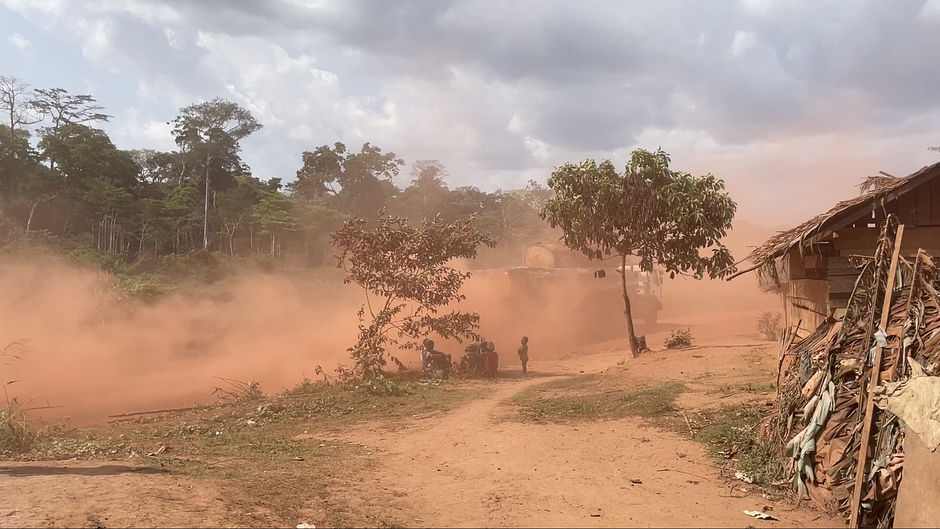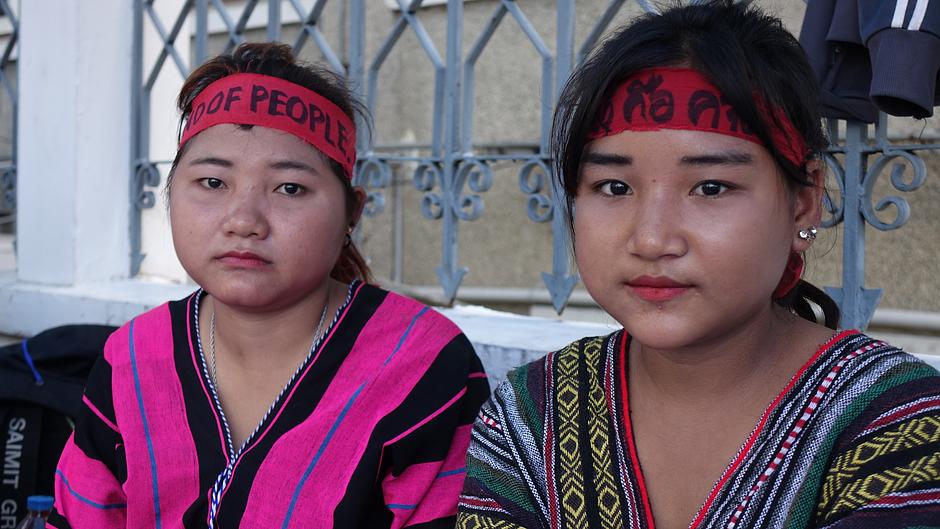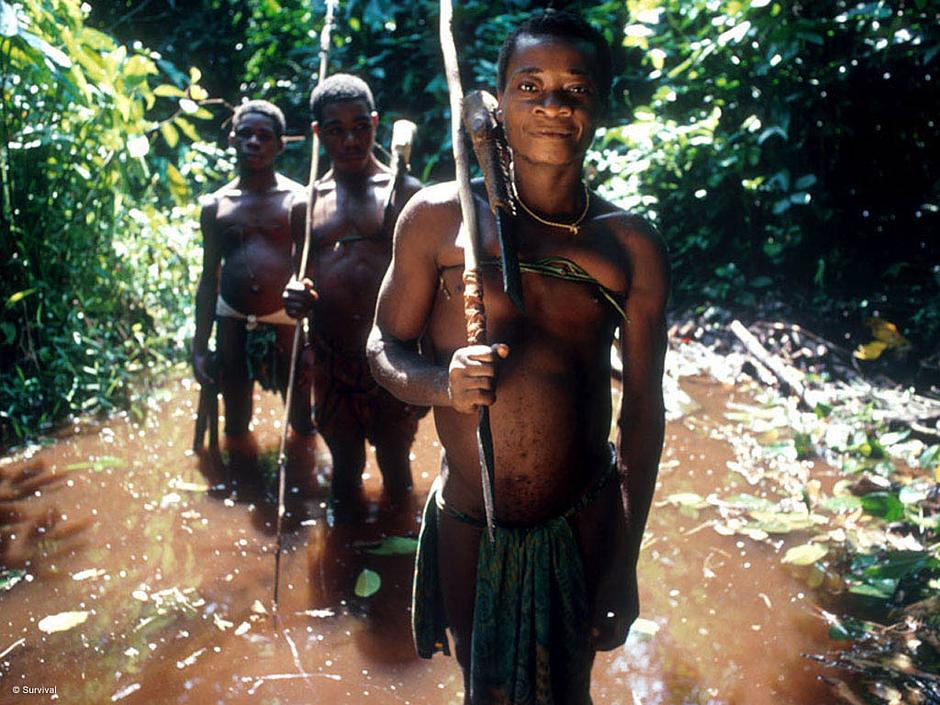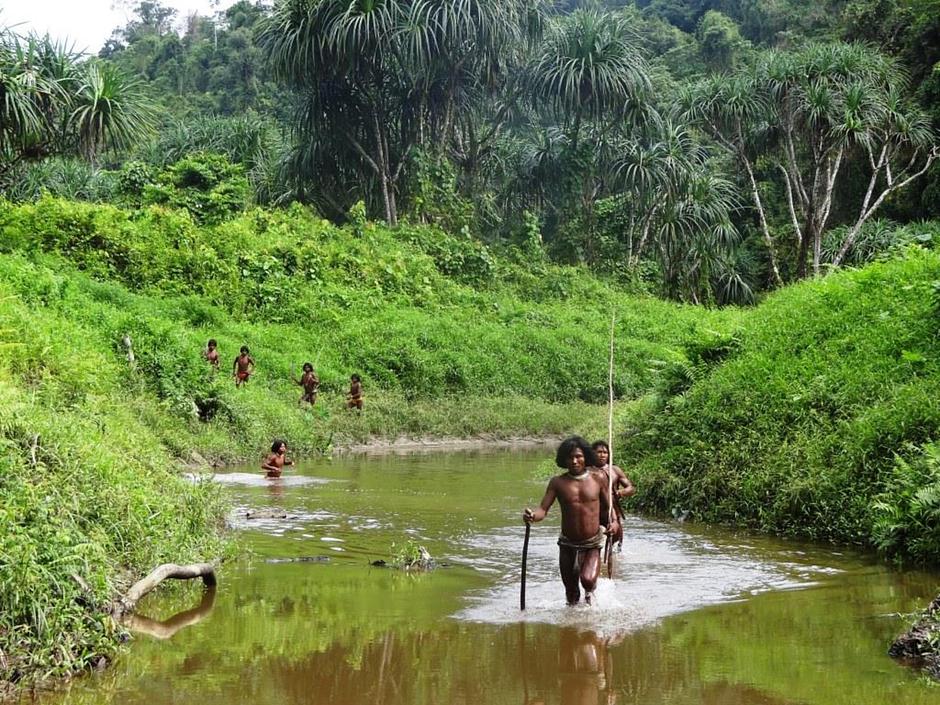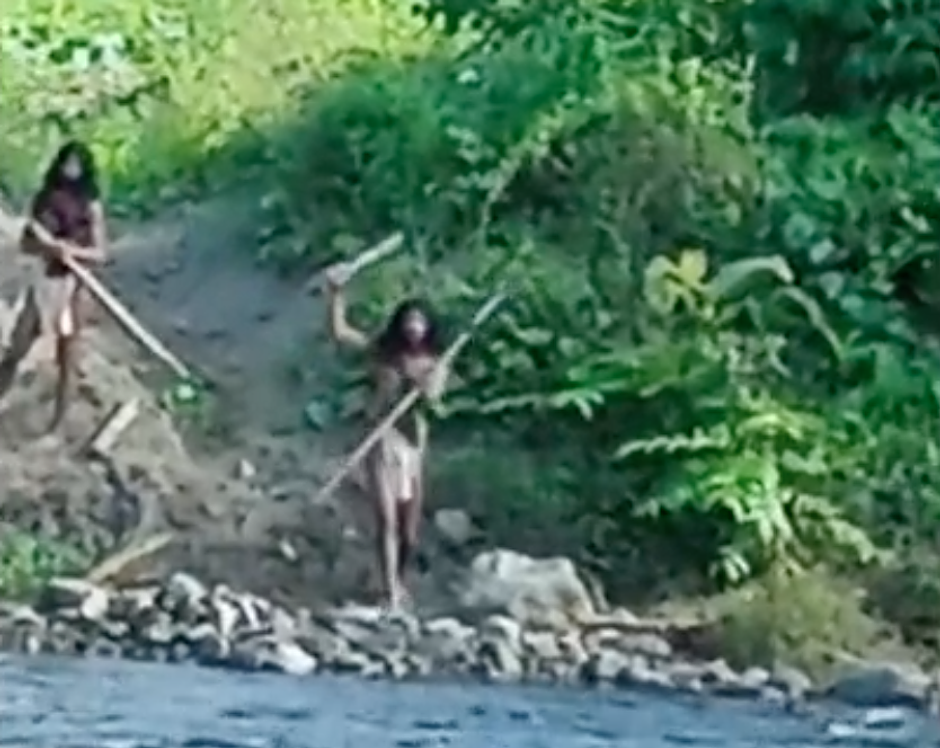Tribal conservationists in the Congo Basin
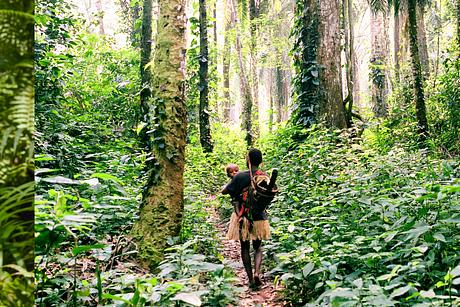 © Kate Eshelby /Survival
© Kate Eshelby /Survival
As the original inhabitants and protectors of the earth’s second largest expanse of rainforest, the Congo Basin, hunter gatherers like the Baka and Bayaka “Pygmies” have developed a vast body of knowledge about the plants and animals they live among. The Baka have more than 15 different names for the forest elephant, depending on its age, sex, temperament and magical status. Yet many Baka report that elephants are disappearing from their forests, due to overhunting by outsiders.
Not only have the Baka and Bayaka built up in-depth knowledge of their environments, but they have also developed sophisticated ways of protecting them.
The lands of these tribes are wrongfully viewed as “wildernesses”, when they have in fact been shaped and managed over millennia by human hands. For example, the Baka and Bayaka know different techniques for replanting wild yams to ensure that they regrow. This way they help to spread pockets of yams – a favourite food of elephants and wild boar – throughout the forest. Today, by clearing small areas of forest for their hunting and gathering camps, they also help sustain a mosaic of different vegetation types. As a Baka man told us, “The people who say they are protecting the forest don’t know it like we do.”
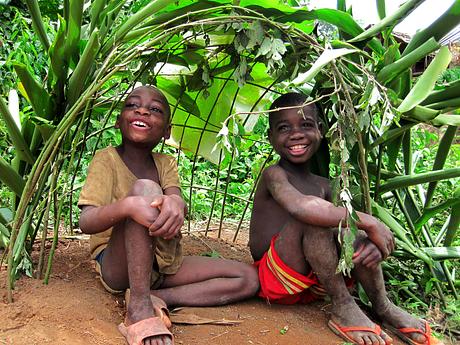 © Cathryn Townsend
© Cathryn Townsend
The Baka and Bayaka are two of the most equal societies in the world, and it is commonly believed that taking too much from the forest, or not sharing it properly with one’s family and friends, harms one’s chances at hunting and gathering in future. Taboos like this guard against over-hunting.
Some Bayaka place leaf cones on paths that lead into parts of the forest where hunting has been unsuccessful. This warns others to avoid it, thereby giving time for game populations to recover.
These unwritten conservation codes not only promote equality and sharing, they are also an important part of how the Baka and Bayaka manage their environment. Yet today the Baka and Bayaka are being forced from these forests by the harassment and violent abuse they receive at the hands of anti-poaching squads.
Many tell Survival that they are unable to pass on important skills and values to their children. Some Baka, for example, lament no longer being able to tell forest tales, or “likano,” to their children, which offer teachings on how to live well in the forest. “This is our ancestors’ forest, but we don’t walk here anymore. We are frightened. We don’t eat well,” a Bayaka woman denounces.
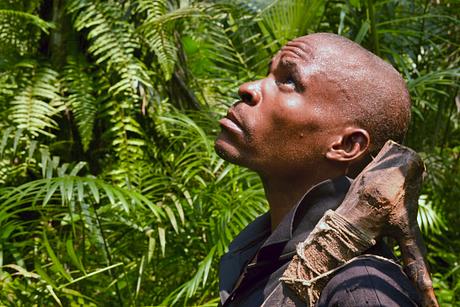 © Lambert Coleman
© Lambert Coleman
The Baka and Bayaka know their lands and what happens on them better than anyone else. “We know when and where the poachers are in the forest, but no one will listen to us,” one Baka man said. In spite of this, conservationists and governments dismiss this wealth of data or, worse, anti-poaching squads attempt to extract the information through torture.
For decades experts have been emphasizing that tribal peoples are an asset to the places they live in. Yet they are still being persecuted in the name of conservation. Forest camps are frequently burned to the ground. Many Baka report that this destroys their life force, or “bindongobo,” and that some people never recover. Confined to roadside settlements, many Baka and Bayaka report that their health is plummeting as they struggle to feed their families and cope with the loss of forest medicines and exposure to new diseases.
These evictions and abuses are not just illegal: they are harming conservation. Scapegoating tribal people like the Baka and Bayaka diverts attention away from
the real causes of environmental destruction. In the Congo Basin this is logging and corruption. Logging companies carve new roads deep into the rainforest and draw outsiders to previously remote regions. Criminal wildlife trafficking networks then take root, operating with the complicity of military elites and local authorities. Some of these logging companies and corrupt officials are even supported by conservationists, who enter into partnership with loggers, trophy hunters, and governments who are destroying the environment’s best allies.
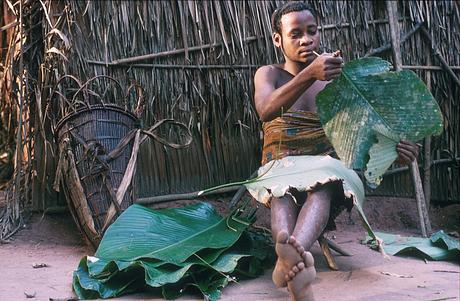 © Salomé/Survival
© Salomé/Survival
For the Baka and Bayaka, the forests of the Congo Basin are their home and the root of their identity. They depend on their forests, and are the best placed to protect the delicate ecosystems that keep them alive. As a Baka man told us, “we feed ourselves by the forest, treat our illnesses by the forest. We have our culture which ties us to the forest. So it’s a very, very important connection for us, for the forest and for the earth.”
The only way to save the incredible biodiversity and natural beauty of the Congo Basin is by upholding tribal peoples’ rights. “God created us for the forest,” one Baka man told us. Without them, the forest might not survive.


